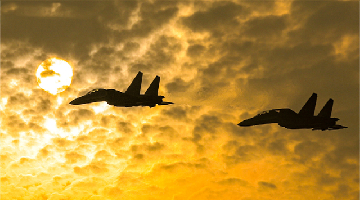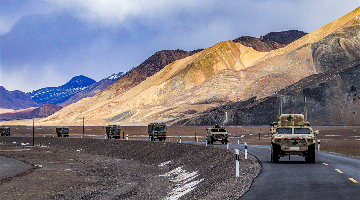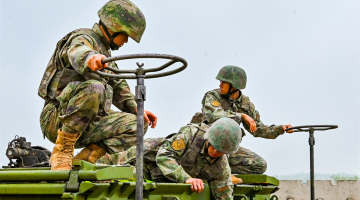By Li Hai
Former US President Donald Trump said at a campaign rally in Ohio on March 16 that Ukraine has to be a little dice. Implicitly, the fate of Ukraine does not lie within itself but rather in the hands of those rolling the dice. A few days earlier, Trump said during a meeting with Hungarian Prime Minister Viktor Orban that if he were to be re-elected as President of the US, he would not allocate funds to Ukraine.
Trump's remarks reflect his position of reducing attention to European security affairs and financial investment. Recently, Trump has not only made a vigorous comeback, but has repeatedly made remarks that have surprised European political circles. On February 10, Trump's speech at a campaign rally about choosing allies depending on military expenditures continued his usual method of "extreme pressure" on NATO and European allies to increase military expenditures and share more defense responsibilities during his term of office.
Faced with the serious situation where Trump, based on "America First" thinking, consistently views European security as negotiable or even dispensable "dice", European politicians are calling for coordination within NATO, especially between the US and Europe, while also working to strengthen European cooperation in preparation for special circumstances. However, the divergences of interests among European countries are becoming increasingly apparent. On March 15, leaders of France, Germany, and Poland under the Weimar Triangle mechanism met in Berlin. They reached an agreement to enhance military support for Ukraine and emphasized that the three countries share the same assessment of the current situation. Despite some media reports stating that unity is the key word for the Weimar Triangle summit, French President Emmanuel Macron reiterated the possibility of deploying troops to Ukraine, leading to opposition from several European leaders.
On March 16, Macron said in an interview that Western allies would not take the initiative to escalate the war but may take ground operations in Ukraine under certain circumstances. German Chancellor Olaf Scholz said that sending troops directly is completely different from providing weapons and financial assistance and refused to deploy ground troops in Ukraine. Italian Deputy Prime Minister and Minister of Foreign Affairs Antonio Tajani pointed out that the deployment of NATO troops to Ukraine means that it may trigger a comprehensive global conflict. Polish Prime Minister Donald Tusk posted on social media, secretly pointing the finger at Macron, saying that what Ukraine needs is less talk and more ammunition.
It can be seen that in the context of NATO's possible loosening of the "security valve" for Europe, although European countries superficially agree with "reinsurance" through internal security cooperation, their specific paths are quite different. France is trying to show its willingness and capability to act as a leader in promoting European independence in the security field through radical statements. However, other European countries are reluctant to accept French leadership, and they doubt whether France has enough strength to defend European security. Germany, Italy, and other countries have always opposed the view and approach of direct confrontation with Russia. Some countries on the eastern flank of NATO, represented by Poland, hope to share more obligations to assist Ukraine to increase their weight in European security affairs via the conflict. The US and European countries have their own motives, which will add more complex factors to the European security landscape.









